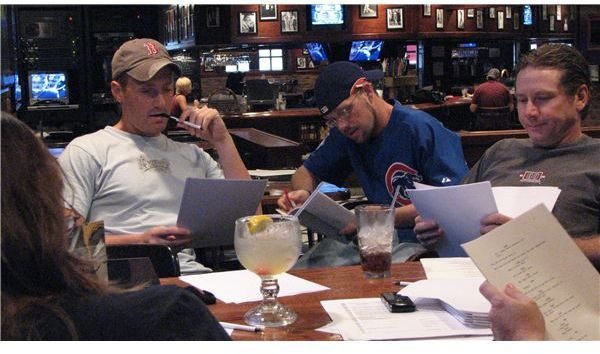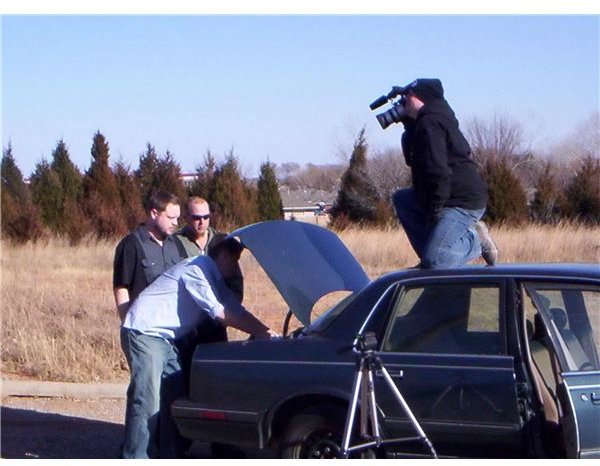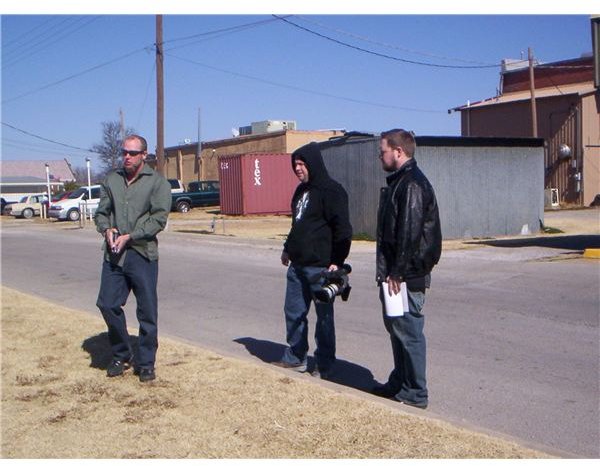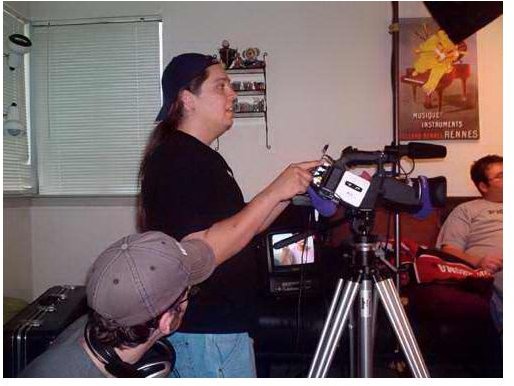Filmmaking Tips: Top 10 Tips on How to Make a Movie
Start with a Good Script
The number one thing that any movie needs before pre-production ever begins is a good script. Whether the filmmaker wrote the movie himself or hired someone else to write it for him, the script needs to be in place before any movement on the production side begins. If the script is not good before the shooting of the movie begins, there is little chance the movie will be any good either.
The script tells the filmmakers how many actors are needed, how many locations are needed and how much money will be required to shoot the movie. It is also important to understand, through reading the script, if the filmmaker is even capable of creating what is needed for the movie. If the script requires CGI, does the individual filmmaker have access to artists who can create that?
Don’t Cast Your Friends in the Lead Roles
Never, ever, cast your buddies in the lead roles of your movie if you want it to be successful. Sure, there are cases where your best friend is a good actor and can fulfill the requirements of the casting. More often than not, your friend just wants to be in the movie but is not good enough to make the character believable. Instead, look for the best actors you can afford to act in your movie. Set up a casting call, putting flyers at local universities, theaters and bookstores and hire actors based on the performances they deliver at their auditions. If you can afford it, go through a local casting agency. There are always small cameo roles your friends can fill out in the movie.
Hire the Best Crew Possible
There is nothing more important than surrounding yourself with a likeminded and hardworking crew. Find a director of photography that understands lighting and has proven to know how to make adjustments regardless of conditions. Find someone who understands sound because that is one of the most frustrating aspects of shooting a movie. Find a reliable and trustworthy person to keep track of all the paperwork so you, as a filmmaker, do not have to wear too many hats. Find another trustworthy person to serve as an assistant director because the worst feeling in the world is to feel alone when it comes to actually shooting the movie. A good crew will make even the most difficult shoots bearable.
Pre-Production is a Must

The worst mistake you can make, other than casting your best friend as the lead in the movie, is to start shooting before you are ready. Plan every scene and every shot before you start filming anything. Make sure you know when and where everything will be shot and what days your actors are needed before you even pick up the camera. Set up times for the cast to get together and do full script read-through’s. This helps eliminate problems that might be in the script that you were not aware of just by reading it yourself. Knowing these important details eliminates headaches down the line.
Keep Detailed Paperwork for Everything
It is imperative that you keep all your filming paperwork and contracts in order. When you get permission to shoot somewhere, even if it is free, contracts must be signed. When actors sign on to play roles in your movie, make sure they sign personal release forms, even if they are working for free. Everything must be documented. There is always the case where a filmmaker finishes the movie and an actor, without a contract, sues to keep the film from being released because you don’t have the legal right to use his likeness. Contracts save you from this headache.
Be Frugal with Your Scheduling
This is especially important if you are paying your actors. Most actors under contract are paid based on the days they show up to work. With this in mind, look at the scenes an actor appears in and find ways to shoot those scenes on the same day. Compact the actor’s shooting schedule in as few a number of days as possible. This is not as possible with the lead actors but if you have someone who only appears in three scenes, get those shot in as small a time frame as possible. If you shoot each scene on different days and, even worse, allow them to be spread over multiple weeks, you will end up paying more for this actor than you ever needed to. This is all part of the pre-production work.
Be Prepared for Anything

It will never fail to happen: You set up a huge shot that is set to take place in a local park and, the day the scene comes up, it is raining. You have two choices as a filmmaker. You can wait out the rain and take the chance of losing a day of filming, costing the entire production money, or have an alternate scene in line to shoot instead. It is always a good idea to set up the outdoor scenes first to allow flexibility in the schedule. Do not let the weather defeat you, just take the rain and roll with it.
Know the Law

Depending on where you are shooting at, there is a chance you will need a filming permit to shoot on public property. Other places, such as Oklahoma, do not require a permit but there are still laws that need be followed. When a filmmaker wants to shoot a gunfight taking place on a local street, make sure local law enforcement officials knows what is going on. A film shoot in Tulsa, Oklahoma was shut down when police showed up and arrested everyone in the middle of a gunfight scene. In a scene my production company shot, we went to the city officials the week before and told them what we wanted to do. They contacted the police and we were good to shoot the scene as a result.
Too Many Cooks Can Ruin a Movie
The producers run the show when it comes to what money is spent and the director needs to understand what can and cannot be allowed when shooting the movie. The actors are hired to perform specific roles as well. If an actor starts to get out of line and acts like they are bigger than the movie, that actors needs to be reined in early or they can ruin the entire movie. If an actor becomes a prima donna early in the movie, it might be better served to replace them before it is too late. Never let an actor bully the director of the movie.
Know When to Hold ‘Em, Know When to Fold ‘Em
Sometimes a director’s vision can grow bigger than what he is actually able to pull off. If a green screen scene is not looking right and nothing seems to work, it might be better to just throw in the towel and shoot it practically. There are lots of tips and tricks at a filmmaker’s disposal, but sometimes things just don’t work out as you want them to. It is always important to know when you need to throw in the towel and move on to something else. It is also better if this is discovered in pre-production.
Sources
Personal Experience.
All photos are personal photographs of the author.
